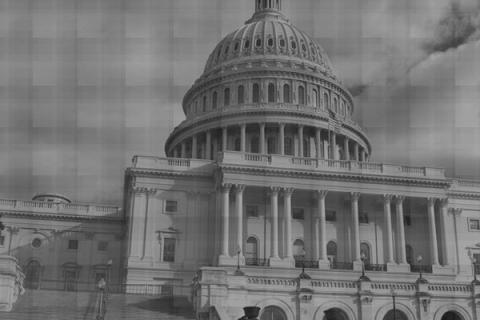On the campaign trail in red-state Kentucky, Tea Party candidate Rand Paul would often say in his stump speech that if Americans were serious about cutting the exploding national deficit, then no program, department, or agency should be "off the table."
While taking great pains to emphasize that keeping Americans safe should be Washington's number one priority, he argued that there is still plenty of wasteful spending in the defense budget. Now Rand Paul is a U.S. Senator and a recent poll shows that the Tea Party, which swept him to victory in Kentucky, agrees- money spent under the pretext of national defense isn't always well-spent, and is contributing significantly to the Federal budget crisis.
The Afghanistan Study Group, a bipartisan group of public policy analysts recently conducted a survey which found that self-identified conservative and Tea Party voters are very concerned about the costs of continued nation-building in Afghanistan. The survey found that 71% of conservative voters are concerned about the price tag of continued war in Afghanistan and worried that the cost will make it more difficult to reduce the deficit this year and balance the Federal budget by the end of this decade. More interestingly, two thirds of respondents said that either Washington should reduce troop levels in Afghanistan or withdraw from the region altogether "as soon as possible," with 39% calling for troop reductions and 27% favoring a full withdrawal. Only 24% of self-identified conservatives supported maintaining present troop levels.
This isn't the first time that signs have indicated conservative opposition to the war in Afghanistan. Outgoing RNC Chairman Michael Steele sparked a firestorm of controversy by suggesting that the war there was Obama's war and a "war of choice" that history teaches us is unwinnable. Conservative columnist Ann Coulter vigorously defended his statements against the criticisms of Bill Kristol and other neoconservative commentators, writing:
"At this point, Afghanistan is every bit as much Obama's war as Vietnam was Lyndon Johnson's war. True, President Kennedy was the first to send troops to Vietnam. We had 16,000 troops in Vietnam when JFK was assassinated. Within four years, LBJ had sent 400,000 troops there."
Another notable conservative calling for an exit of Afghanistan is Americans for Tax Reform President Grover Norquist, who Foreign Policy magazine reports is hoping "to build a center-right coalition to advocate for considering pulling out of Afghanistan in order to save the hundreds of billions of taxpayer dollars being spent there." Norquist invokes Ronald Reagan, who had to deal with terrorist attacks during his own presidency, but did not commit U.S. troops to open-ended occupations of foreign countries:
"Reagan didn't decide that the U.S. should stay in Lebanon for 15 years. We left that country to have their civil war all by themselves."
If a majority of Americans, from all across the political spectrum, support scaling down the U.S. occupation of Afghanistan, what will it take for their leaders in Washington to listen?

